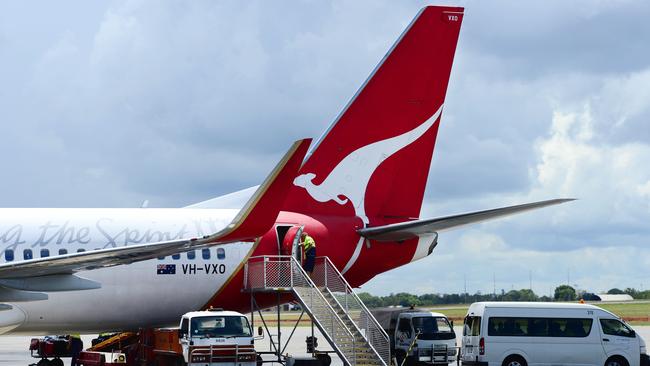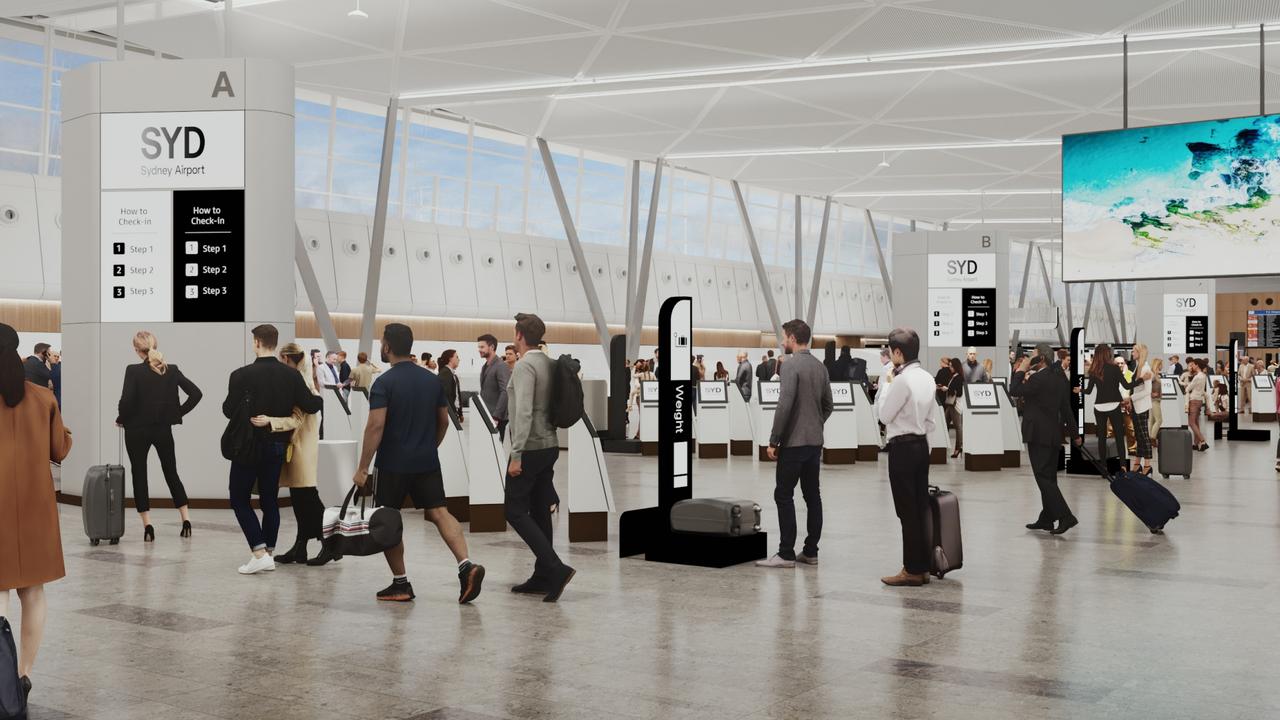Qantas accused of holding airports to ransom over increased fees
Qantas has been accused of holding smaller airports to ransom by refusing to pay increased aeronautical fees.

Qantas has been accused of holding smaller airports to ransom by refusing to pay increased aeronautical fees.
The Northern Territory Airports submission to the Productivity Commission inquiry says the national carrier has refused to pay a 2.5 per cent increase in charges at Darwin airport levied from July 1 last year.
Qantas had also refused to pay a 3 per cent rise in charges at Alice Springs airport since 2015, and now owed an estimated $1.6 million, it is claimed. The Qantas Group dominates at both airports, operating between 55 and 70 per cent of all flights.
About 2.8 million people have used Darwin and Alice Springs airports in the past year, and the fees being sought amount to $19.43 for each domestic and international passenger.
Other airports charged from $11.46 a passenger, in the case of the Gold Coast, to $25.94 a passenger in Melbourne.
A return Sydney-Darwin airfare with Qantas costs about $680, and about $460 with Jetstar.
Northern Territory Airports suggested it was “powerless to counter the Qantas tactic” because the airports did not have a commercially viable response. “Qantas refused to pay the 2.5 per cent increase on the basis it does not pay charges it does not agree to,” the submission says.
“This is clear evidence of the exercise of significant market power by an airline group.”
Most other airlines were paying the increase, but options to recover outstanding money from Qantas were limited, the submission suggests.
“The debt will continue to accumulate, with the options being a negotiated outcome, court ruling or writing the debt off because (Darwin) simply does not have the ability to recoup the debt.”
Alice Spring airport was considering legal action as its only avenue of redress, the submission says.
A Qantas spokesman said the airline would not pay the increased amount because Northern Territory Airports’ charges were “already too high”. “Darwin and Alice Springs are two of the most expensive airports to fly to in Australia and we want to ensure that our customers are not paying more in airport charges than is absolutely necessary,” he said.
“This mindset of monopoly airports charging customers whatever they can get away with is why we need better regulation of airport pricing in this country.”
Australian Airports Association chief executive Caroline Wilkie said the AAA was aware of the situation relating to Northern Territory Airports, and understood this “short-paying” of invoices had occurred at other airports.
“This demonstrates that airports cannot unilaterally determine charging outcomes and, even when they are not being fully paid, airports leased from the Australian government continue to invest and provide services to all Australians,” she said. “This is an important issue that will be explored in the AAA’s upcoming submission to the Productivity Commission.”
The Airports Act requires major airports to provide access to airlines under the terms of their lease, even if charges incurred have not been paid in full. At the same time, airports are expected to maintain airside and landside infrastructure.
A spokesman for Transport Minister Michael McCormack said he would consider the recommendations of the Productivity Commission when its final report is handed to the government next year.



